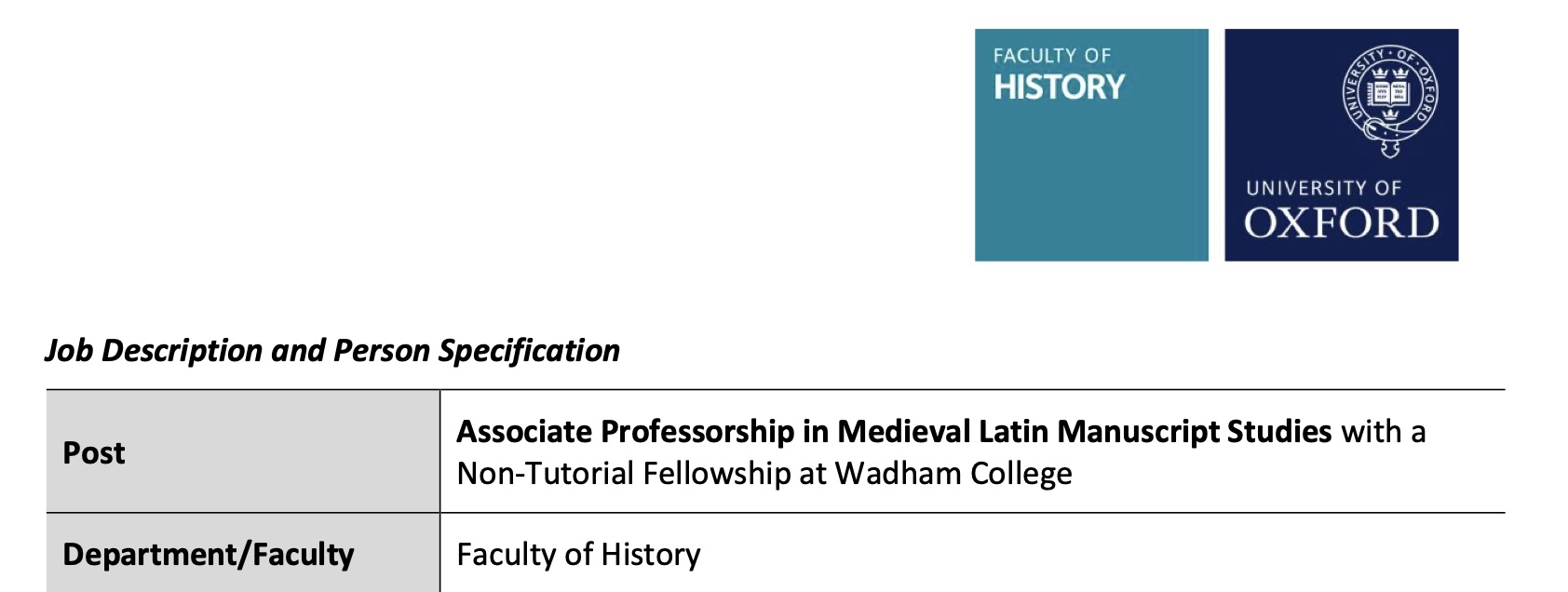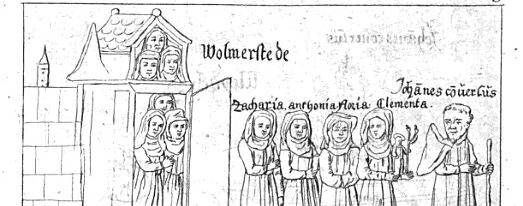The group continues to meet in hybrid format at Harris Manchester College (see photo!). We study the literature of the Anglo-Norman world (the insular French of the Middle Ages) in four collaborative sessions per term, presenting and translating texts chosen according to members’ needs or suggestions. The range of material is inclusive: romance, chronicle, saints’ life, religious material, letters, legal texts… When possible, we invite a guest speaker, or (for example) the editor of a work in progress. We believe our extra-curricular group has been an important addition to medieval studies in Oxford for at least 20 years. We welcome all comers, primarily graduate students but also numerous others, whether they know any French or Old French or not; we welcome all readers in any medieval language, literature, history, hagiography, music… Recent texts have included the Anglo-Norman life of St Godric, presented by Margaret Coombe, and an Apocalypse edited and translated (with our help) by Antje Carroll. Michael Angerer presented part of his thesis as an introduction to reading the Voyage of Brendan.
As an amusing change, we recently read a translation of a short modern story into Anglo-Norman, that I had been commissioned to make. The group `peer-reviewed’ my work, offering suggestions and improvements. It was as valuable in terms of language and vocabulary, and for the study of genre, as reading the real thing!
The group is run by me, an independent scholar in Anglo-Norman studies. I studied with Tony Hunt and have many years’ experience of teaching and publication. An average meeting varies from 4 to 12 people in person, depending on a busy Oxford term, and our hybrid format allows scholars from farther afield, who bring the number up to perhaps 20. We take it in turns to read the text aloud, never mind the pronunciation, and then help one another with translation and commentary. Each text is presented with an introduction, questions are explored and discussion is encouraged. It’s our mixture of serious scholarship and fun (not to mention the refreshments: thank you, OMS) that has kept the group going for so long.
Jane Bliss (jane.bliss@lmh.oxon.org)











